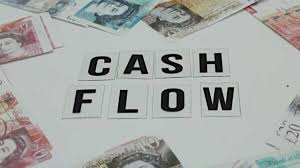Freelancing in the UK offers freedom, flexibility, and independence—but it also comes with unpredictable income patterns. The dreaded “slow season” can strike even the most established freelancers, leaving them scrambling to cover expenses. Whether it’s the post-holiday slump or summer quiet periods, planning ahead is key to survival. This guide, “Freelancer Cash Flow UK: Tips to Survive the Slow Season,“ offers actionable strategies to help UK freelancers navigate lean times without losing financial stability—or sleep.

Understanding the “Slow Season” for UK Freelancers
The “slow season” refers to periods when client work decreases or halts temporarily. In the UK, this often occurs:
- In January and February after holiday budgets are exhausted.
- During July and August, when many clients take summer breaks.
- Around Christmas and New Year, when businesses pause non-essential projects.
Freelancers in sectors like creative services, consulting, marketing, and education are especially vulnerable. Recognising your own seasonal cycles allows for better planning and preparation.
Why Cash Flow Planning Matters
Cash flow is the lifeblood of your freelance business. Unlike fixed employment, you may experience late payments, dry months, or lump-sum invoices. Without healthy cash flow:
- Bills go unpaid.
- Savings dwindle.
- Tax obligations to HMRC become stressful.
Proper cash flow planning ensures you’re not caught off guard when work slows or payments are delayed.
Tips to Manage and Improve Cash Flow During the Slow Season
Build a Cash Reserve
Aim to set aside 3–6 months of expenses in a high-interest UK savings account such as:
- Chase Saver (UK) – 4.10% AER
- Atom Bank Instant Saver – competitive interest for freelancers
Treat it as an emergency buffer, only to be used during lean periods.
Invoice Promptly and Follow Up
Use accounting software to send invoices on time and track payments:
- FreeAgent – popular with UK sole traders and freelancers
- QuickBooks Self-Employed – great for mileage and expense tracking
- Xero – scalable for growing businesses
Set automated reminders and maintain polite but firm follow-up practices.
Offer Discounts for Early Payment
Encourage clients to pay faster by offering a 1–2% discount for payments within 7 days. While it slightly reduces income, it significantly improves cash flow during tough months.
Diversify Your Income Streams
Never rely solely on one income source. Consider:
- Digital products (eBooks, templates, courses)
- Affiliate marketing through platforms like Awin or Amazon UK
- Teaching online via platforms like Skillshare or Teachable
- Remote gig work on Upwork or PeoplePerHour
Cut Non-Essential Costs
Audit your expenses quarterly. Cancel or pause:
- Software subscriptions you no longer use
- Premium tools with free alternatives
- Co-working spaces during remote-only months
Small monthly cuts can save hundreds annually.
Review Your Pricing Model
Raise your rates strategically:
- Consider value-based pricing instead of hourly
- Offer monthly retainers to smooth out income
- Adjust your proposal language to highlight ROI
Use the slow season to update service packages and pitch higher-value work

Apply for Grants or Government Support
Explore available UK support options:
- Start Up Loans from the British Business Bank
- Local Enterprise Partnerships (LEPs) offer grants and advice
- For emergencies: Universal Credit for self-employed with journal documentation
Stay updated via gov.uk and local councils.
Use the Time to Upskill
Invest time, not just money:
- Take courses on LinkedIn Learning, FutureLearn, or Google Digital Garage
- Upskill in high-demand areas like SEO, UX Design, or copywriting
- Use the downtime to rebrand or rebuild your website/portfolio
Financial Tools & Templates for Freelancers Cash Flow UK
Stay organised with tools tailored to UK freelancers:
- Coconut – combines accounting, banking, and tax filing
- Monzo Business – helpful for budgeting and cash pots
- Tide – simple business account with invoice tracking
Use a free freelancer cash flow UK template (e.g., from MoneySavingExpert or HMRC) to map income and expenses monthly.
Mental Health and Motivation During Dry Spells
Quiet periods can trigger anxiety and self-doubt. Maintain mental clarity by:
- Setting weekly goals (non-client-based)
- Practicing mindfulness using apps like Headspace or Calm
- Networking in UK freelance groups (e.g., Freelance Heroes, The Dots)
Remember: Rest, reflection, and reinvention are all productive.
Long-Term Financial Planning for Freelancer Cash Flow UK
Think beyond this month:
- Open a SIPP (Self-Invested Personal Pension) via Vanguard or AJ Bell
- Save with a Stocks & Shares ISA
- Invest small amounts using apps like Plum, Moneybox, or Nutmeg
Use slow periods to review your pension contributions and update your retirement goals.
Conclusion
The slow season doesn’t have to be scary. With the right cash flow strategies—like saving in advance, invoicing smarter, and diversifying income—you can take control of your finances and keep your freelance business afloat. Use this time to reflect, grow, and plan. Your next busy season will thank you for it.
FAQs: Freelancer Cash Flow UK: Tips to Survive the Slow Season
1. What is the slow season for freelancers in the UK?
The slow season refers to times of the year when freelance work typically decreases—often around January–February, July–August, and the holiday season (December). These periods vary depending on your industry.
2. How much should I save to prepare for the slow season?
It’s recommended to save 3–6 months’ worth of essential expenses in a separate high-interest savings account to cover periods of low or no income.
3. What can I do if clients are late in paying invoices?
Use invoicing software to send automatic reminders and include late payment terms in your contracts. In the UK, you can legally charge interest and compensation on overdue invoices under the Late Payment of Commercial Debts Act.
4. Are there any government schemes or grants available for UK freelancers?
Yes. Depending on your region, you may qualify for:
- Start Up Loans from the British Business Bank
- Local council small business grants
- Universal Credit for self-employed individuals during hardship
Check gov.uk and local enterprise websites for current schemes.
5. What’s the best way to track my freelance income and expenses?
Use UK freelancer-friendly tools like:
- FreeAgent (especially good if your accountant uses it)
- Coconut (tailored to sole traders)
- QuickBooks Self-Employed
Also, keep a separate business account with Monzo Business or Tide.
6. Can I reduce my freelance tax bill legally during the slow season?
Yes. Make sure you’re:
- Claiming all allowable expenses
- Using your £1,000 Trading Allowance if you earn under £1,000 as a side hustle
- Contributing to a pension, which reduces your taxable income
Consult a qualified UK accountant for advice tailored to your situation.
7. What are some ways to earn extra income during slow months?
You can:
- Sell digital products (templates, courses)
- Offer online coaching or consulting
- Join platforms like Upwork, PeoplePerHour, or Fiverr
- Start affiliate marketing or freelancing in a new niche
8. Is it a good idea to raise my rates during a slow season?
Yes, but only if it aligns with your value and market demand. Use slow periods to repackage your services or introduce retainer pricing for consistent income.
9. How do I stay motivated during dry spells?
Set goals unrelated to client work, like:
- Rebuilding your portfolio
- Updating your LinkedIn
- Taking a new course or learning a skill
Also, connect with other freelancers in UK support groups for accountability and encouragement.
10. Where can I find a free cash flow template for freelancers?
You can download cash flow forecast templates from:
- MoneySavingExpert
- HMRC’s Self Assessment toolkit
- The Association of Independent Professionals and the Self-Employed (IPSE)
